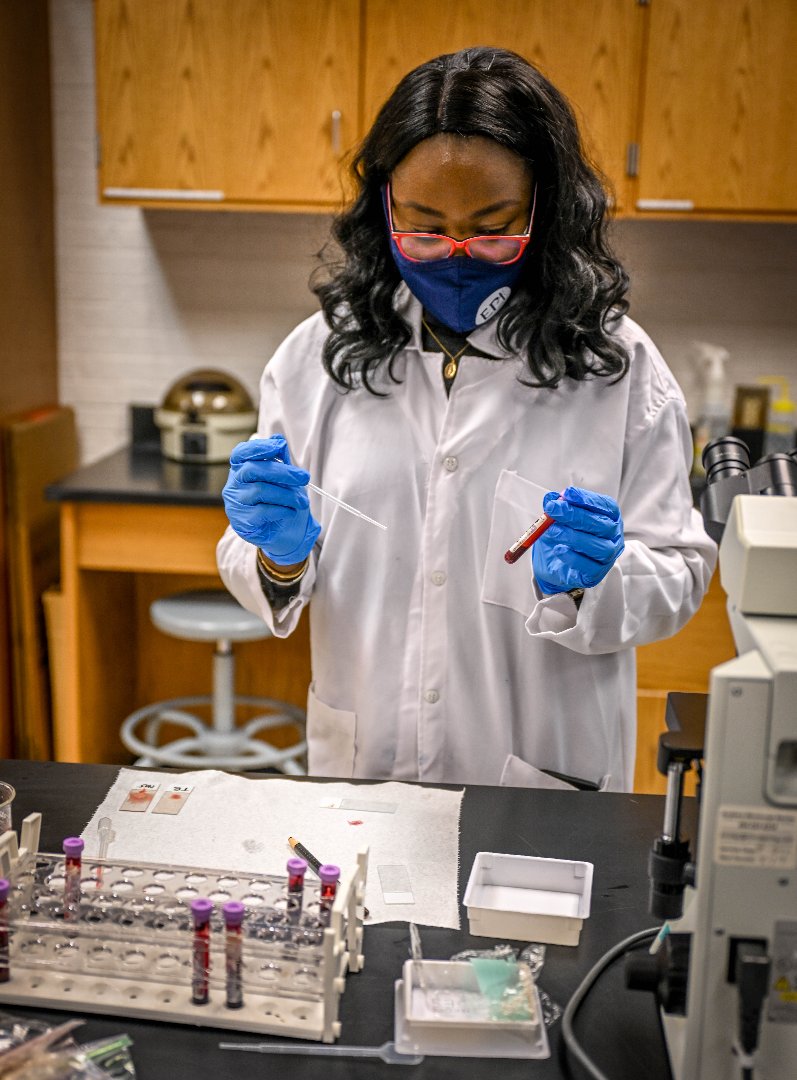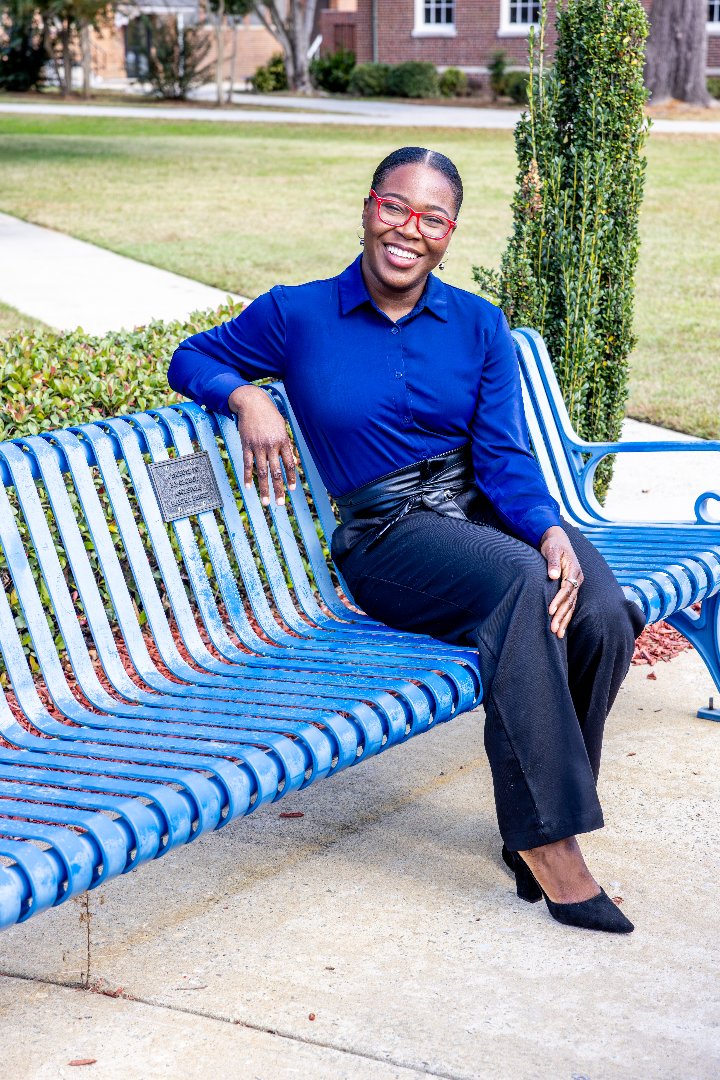Caroline Obi saw firsthand the injustices out her own backdoor growing up in Nigeria. Her giving parents and the inequitable experiences that many of her friends faced opened her heart to service.
“I consider myself blessed to have been raised in a family who was able to provide and expose me to other cultures,” she said.
However, she observed environmental inequities in her home country. She recalled befriending the children at an orphanage who she visited with her siblings and parents, Gabriel and Caroline Obi, to celebrate their birthdays.
“These were my friends. I was concerned about being able to exist and survive in an environment where if I pushed for my goals, I could see the results and have the resources to realize my life’s purpose,” she said.
Even as a child, Obi always desired to be in a position where she could help improve people’s conditions.
“At the time, I didn’t know the title of environmental health or public health. I just knew that at some point in my career, I wanted to be an advocate in my community for children who are underserved so they can be in the best environment where they can be healthy and realize their full potential,” Obi said.
What made sense for her was the path of medical school. However, after becoming a doctor, she knew her calling was not based on the four walls of a consulting room.
“I wanted to be more involved in the community and behind the scenes in understanding regulations that protect and prevent illnesses that are 100% preventable,” she said. “I discovered children’s environmental health, and I knew for sure that I wanted to advance my career in public health.”
Fort Valley State University’s (FVSU) Master of Public Health (MPH) Program appealed to her due to its hybrid format and the possibility to explore professional opportunities through research. Her first semester as a Wildcat opened the door to working with her mentor, Dr. Oreta Samples, FVSU assistant professor and MPH Program coordinator. It also opened the door for interning with the National Environmental Health Association for the New York State Department of Health’s Environmental Health. She worked on a public health policy project to study the influence of environmental compounds on breastfeeding.

However, it was her second year as a graduate student that sealed the deal with a career in public health. Accompanying Samples to the Georgia Environmental Health Association Conference, Obi learned about the Georgia Department of Public Health’s Healthy Homes and Lead Poisoning Prevention Program.
“With the changes being made to the program such as lowering the levels of lead from 5 micrograms per deciliter to 3.5 micrograms per deciliter, they anticipated more cases and would be hiring new district lead coordinators,” Obi noted.
She decided to apply and received a job offer as the district lead and healthy homes coordinator for the Environmental Health section in District 5-2 (North Central Health District) in Macon, Georgia. Obi was thrilled to earn this role in 2022 during her final year of graduate school.
The MPH graduate’s duties involve performing home assessments once notified by the regional lead coordinator about a child in her district who has a high level of lead poisoning. She then contacts the parents and educate them about the program, potential harm of lead poisoning and the need to have a home assessment. Obi uses a device that can immediately detect the presence of lead in the home and sometimes collects water and soil samples. The results allow for her to locate the source and then share the report of low-cost or no-cost recommendations by federal and state agencies with the parents. She is responsible for enforcing regulations to protect children, writing abatement orders, and reviewing work plans for clearance to ensure hazard reduction and control.
“We focus on children who are 6 years old and under,” Obi said. “That age is crucial because that is the fastest rate at which they are developing.”
She explained that childhood lead exposure can slow the mental capacity and development of a child, including their growth and learning behavior. She noted many of the issues are preventable. She serves 13 counties and does collaborative work with childcare providers, community organizations and other public health programs like Children’s First, Women Infants and Children (WIC), and the epidemiology program.
“Public health is implementing preventive strategies, promoting resources and educating,” Obi declared. “A lot of the issues that exist is because people don’t know or have the resources.”
The most fulfilling part of her job is having that one-on-one contact with parents and seeing the drop of blood lead levels in those children affected.
“It makes me feel good. It has been a learning opportunity. I consider myself blessed and lucky to serve and start my career path in public health, specifically in children’s environmental health,” Obi said, also praising her amazing team.
Grateful for the many opportunities, she is paying it forward by doing what she always wanted to do.
“I am putting on the armor to follow my calling,” she said. “I always knew as a child that I wanted to work for a government agency. I wanted to understand the regulations and what it would take to have a voice to effect change in communities whether nationwide or globally.”
She said the key to serving in her role is a combination of technical and personal skills. She added it is crucial to have a good understanding of environmental laws and regulations at all levels. It takes possessing effective communication skills to educate and interact with the public, health professionals and key decision-makers.
“The manpower that goes behind making sure that every place we live, learn and play in is safe, every food we put in our mouths is safe to eat, water is safe to drink, and the pool is safe to swim in, some countries do not have that luxury,” Obi said. “It stays on the backbones of environmental health professionals.”
The district lead and healthy homes coordinator is excited about where she is right now but also about what more is expected of her. She desires to serve in a Pediatric Environmental Health Specialty Unit to continue her mission of prevention and treatment of health issues in children that arise from environmental exposures.
Motivated by her parents, Obi is humble and grateful.
“That was part of my siblings and my upbringing, which I maintain today,” she said.

